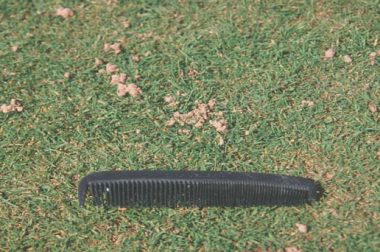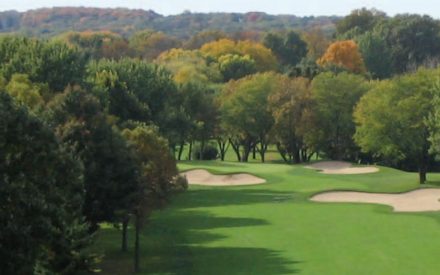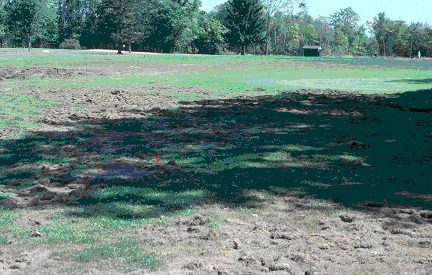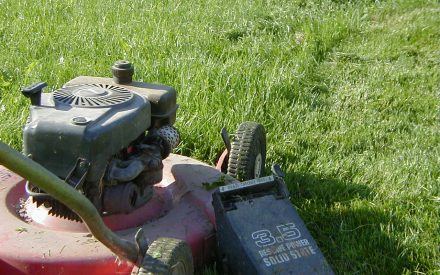
R. Chris Williamson, Turf and Ornamental Specialist
Revised: 4/26/2010
Earthworms belong to the Phylum Annelida; Class Oligochaeta; Family Lumbricidae which consists of over 7000 species. Their bodies are long and tube-like, tapering on both ends and typically ranging in length from one to six inches. Earthworms are found in a wide range of habitats adapting to numerous different soil types as well as lakes and streams. Earthworms are frequently called night crawlers, garden worms, red worms, and sometimes worms. They are a valuable resource to many people, providing bait for fishing, a source of protein for food, and they play an important and unique role in conditioning the soil. Earthworms are beneficial to the soil in several ways: 1) they enhance soil aeration, 2) improve water infiltration, 3) and decomposition of organic matter and thatch. However, earthworms are also viewed as turfgrass pests because of their habit of depositing soil on the turf surface as castings, which can disrupt the smoothness and uniformity of putting greens and overall aesthetics of other fine turf. Additionally, earthworms are the preferred food for moles whereby areas of turf may be disrupted by foraging moles. Consequently, pesticides are sometimes applied in an attempt to reduce the food supply, and cause the moles to look elsewhere. However, there is no evidence that eliminating earthworms will solve the problem with moles. The perceived negative effects of earthworms may be counterbalanced by the overall benefits that earthworms provide.
Management There are NO pesticides registered for control of earthworms, nor is chemical control recommended. Although earthworms have a few negative attributes, their benefits greatly outweigh the nuisance they cause. Use of specific fungicides and insecticides can be highly toxic to earthworms and they will suppress, or nearly eliminate, earthworm populations. Moreover, pesticide applications specifically for the purpose of earthworm control are off-label and against the law. Without the presence of earthworms, thatch accumulation and soil compaction may increase. Turf that has mounds of castings can be effectively managed by raking down, rolling, or physical removal.
Download Article





 Managing Turfgrass Pests in Wisconsin
Managing Turfgrass Pests in Wisconsin Turf Diseases of the Great Lakes Region
Turf Diseases of the Great Lakes Region White Grub Control in Turfgrass
White Grub Control in Turfgrass Lawn Maintenance
Lawn Maintenance


